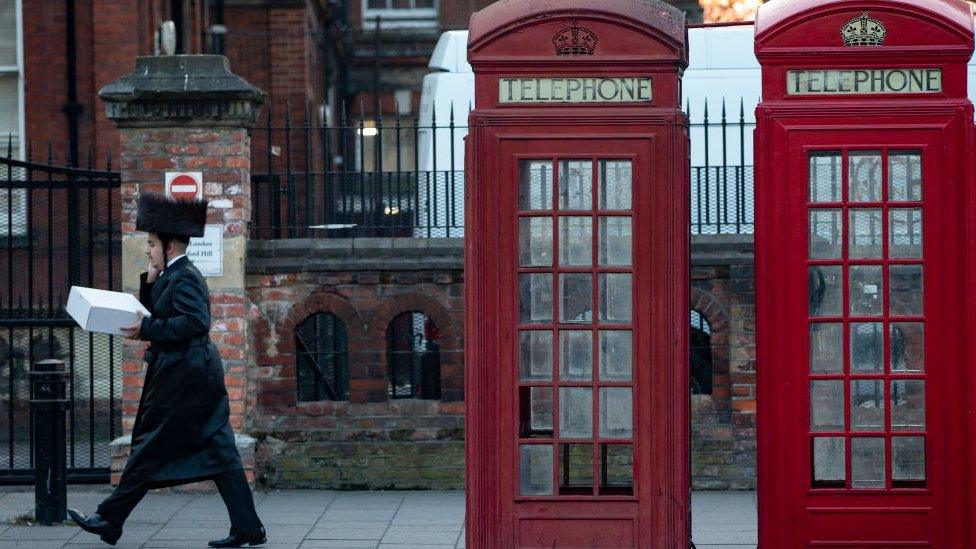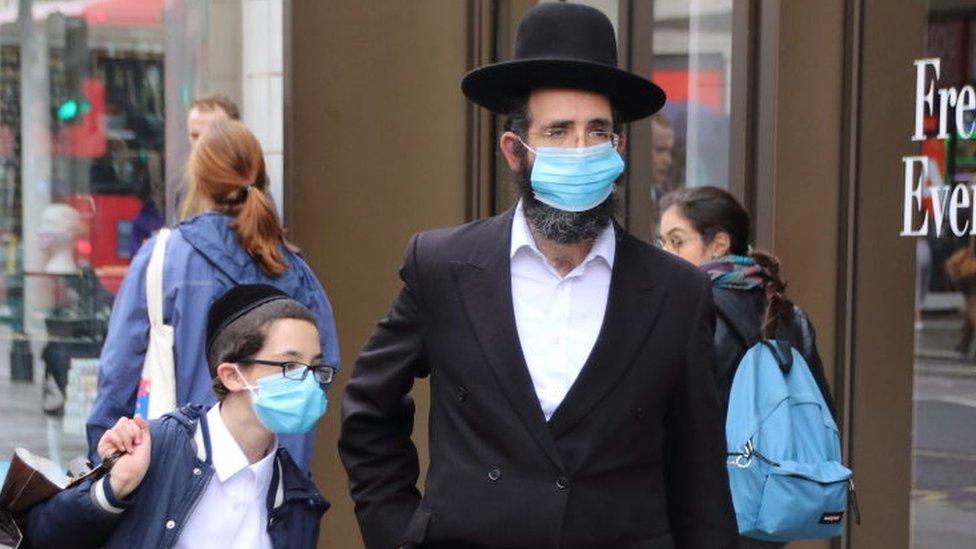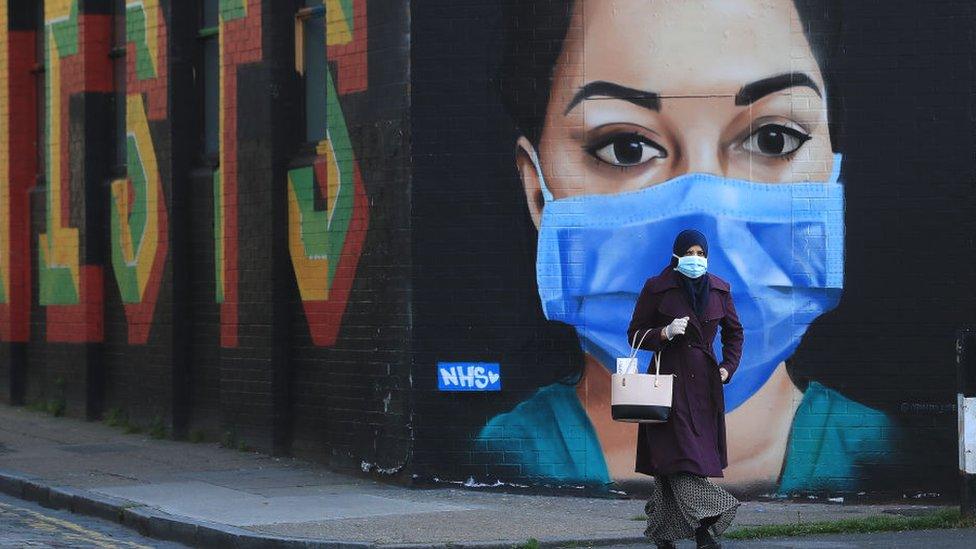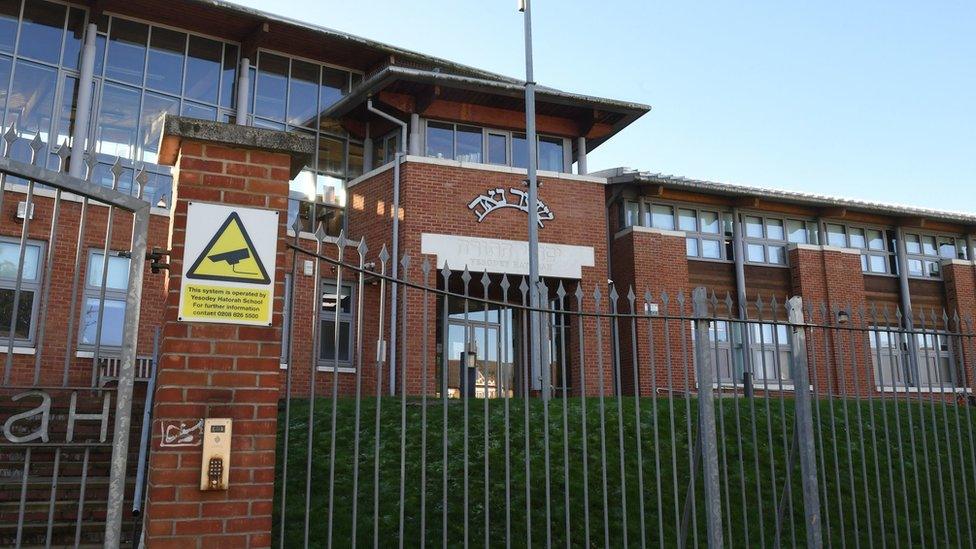Covid: London's Orthodox Jews have 'one of highest rates in the world'
- Published

The past infection rate in London's strictly Orthodox Jewish community is "among the highest reported anywhere in the world".
London's strictly Orthodox Jewish community has one of the world's highest rates of Covid-19 past infection, according to a study.
Roughly 15,000 of the capital's strictly Orthodox Jews have contracted coronavirus, the London School of Hygiene and Tropical Medicine found.
This gives the community a past infection rate of 64%, nine times higher than the UK average of 7%.
The rate is "among the highest reported anywhere in the world" the study found., external
As the study was conducted in December 2020, before a national surge in coronavirus cases, researchers believed "it is likely "the rate is now even higher.
The reason for this higher prevalence remains unclear, the study said.
High rates of overcrowded homes and higher levels of deprivation among London's strictly-Orthodox Jewish Community could be linked to the increased rate, researchers said.
The average household in the community is five-to-six individuals, compared to a UK average of 2.3 per house.
But Jewish men are twice as likely to die from Covid-19 than Christian men in the UK, even after adjusting for socio-economic factors.

Overall strictly Orthodox Jewish men were found to have a higher rate of infection than women.
Blood samples were taken from 1,242 individuals as part of the study, while more than 1,750 individuals responded to a survey.
There are an estimated 23,000 strictly Orthodox Jews living in London
Children aged under five years had a past infection rate of 28% - the lowest in the community.
Secondary school children and adults had a rate of around 75%. Overall, men were found to have a higher rate of infection than women.
"Religious and ethnic minority groups have been at increased risk at all stages of the pandemic leading to preventable health inequalities," said Dr Rosalind Eggo, who co-led the study.
Evidence shows people from ethnic minority backgrounds have been disproportionately impacted by the coronavirus pandemic.
Dr Michael Marks, who co-led the study, said: "These findings could support potential new interventions that may help reduce infection in the community.
"The rates we observed are among the highest reported anywhere in the world to date.
"We would very much like to thank the community. It was a privilege to work directly with them, and think this community partnership approach could be a blueprint to further understanding of the impact of Covid-19 on other groups in the UK."
Related topics
- Published13 June 2020

- Published22 January 2021
